
Background
Zero Waste is a philosophy that encourages the redesign of resource life cycles so that all products are reused. The goal is for no trash to be sent to landfills, incinerators, or the ocean. The process recommended is one similar to the way that resources are reused in nature. In the world, 1.3 billion tons of food is landed on landfills every year - that’s 1/3 of the total production. In Poland, almost 9 million tons of food is wasted every year - almost 7 million tons on the producers’ side and more than 2 million tons in households - just because people buy too much.
The production of compost is a simple way to manage garden and kitchen waste as well as the production of ecological fertilizer. It is estimated that in an average household, material suitable for composting accounts for over 40% of all waste. Keeping compost is one of the pillars of ecological life. It allows you to produce less waste and produce valuable fertilizer for organic plants. In contrast to other fertilizers - artificial and even organic when fertilizing compost not there is a fear of overdose or inability to use them.
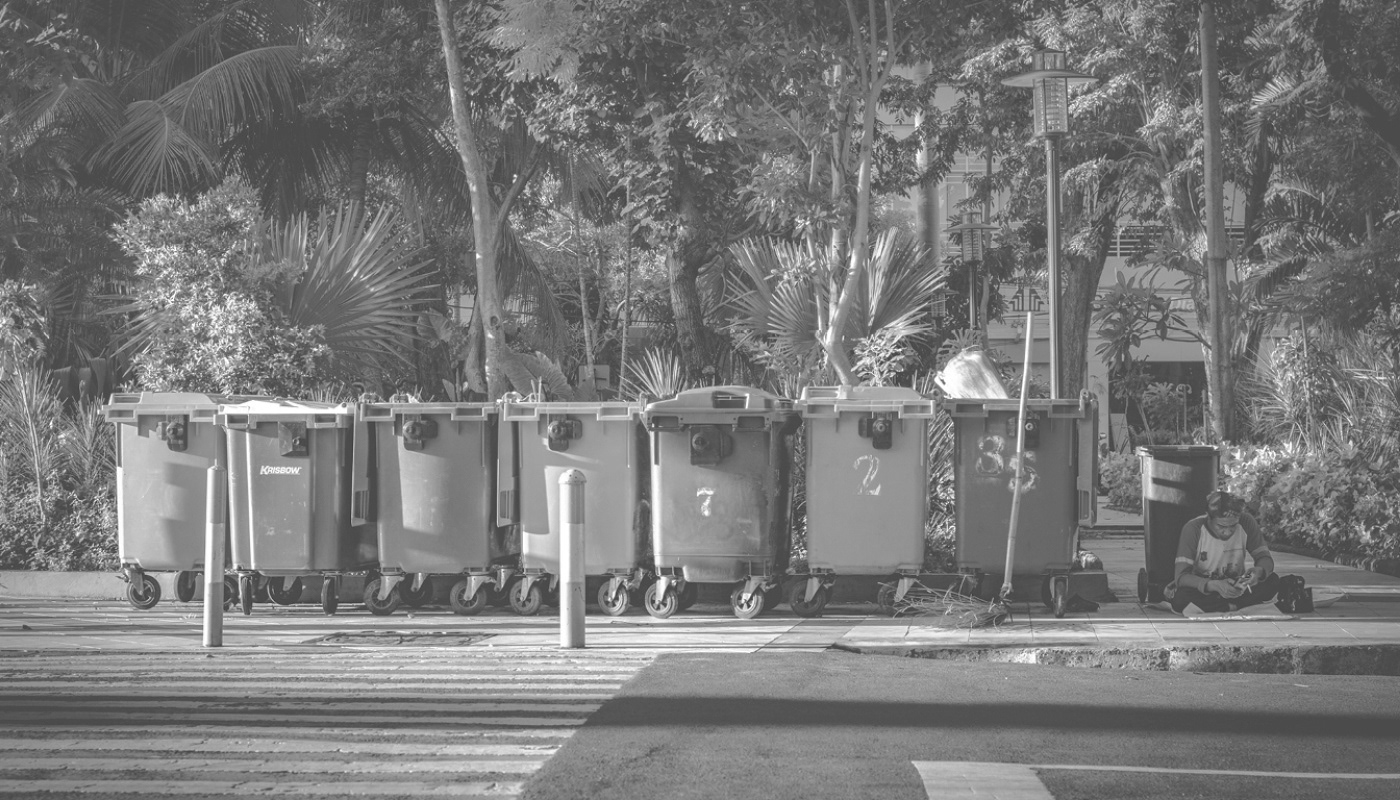
About composting
Composting is a natural method of disposal and management of organic waste. It consists of two main processes - mineralization under aerobic conditions and humification. The increased temperature at which these processes take place (even up to 70 ° C) the presence of mold fungi producing antibiotic substances, guarantees the destruction of all pathogenic microorganisms. The result is a stable humic substance that can be used as an organic fertilizer.
An adequate amount of available oxygen is important for a correct composting process. Oxygen is necessary to ensure the biological activity of microorganisms and to remove excessive amounts of water. Microorganisms that „perform” the composting process require oxygen. The lack of an adequate amount of oxygen results in the death of aerobic organisms, which occupy the anaerobic space.\

Advantages of composting
• reduction of the total amount of waste sent to landfill,
• neutralization of waste in terms of sanitary-epidemiological
• production of compost necessary to ensure fertility of soils
• simple composting technologies,
• low investment and operating costs,
• easy storage of unused compost
• significant reduction in the production of rubbish in the household
• neutralization of waste in terms of sanitary-epidemiological
• production of compost necessary to ensure fertility of soils
• simple composting technologies,
• low investment and operating costs,
• easy storage of unused compost
• significant reduction in the production of rubbish in the household

About project
The project was created for everyday use in small residential spaces. It aims to change habits, behaviours and popularize the practice of composting, by changing the use process to more friendly and increasing the visual attractiveness of the product. Thanks to modularity, it takes up little space and allows you to process a large amount of waste. A Built-in fan, which pushes the air inside, guarantees good oxygenation of the compost (it is important that the correct processes take place), and the carbon filter protects against an odour.
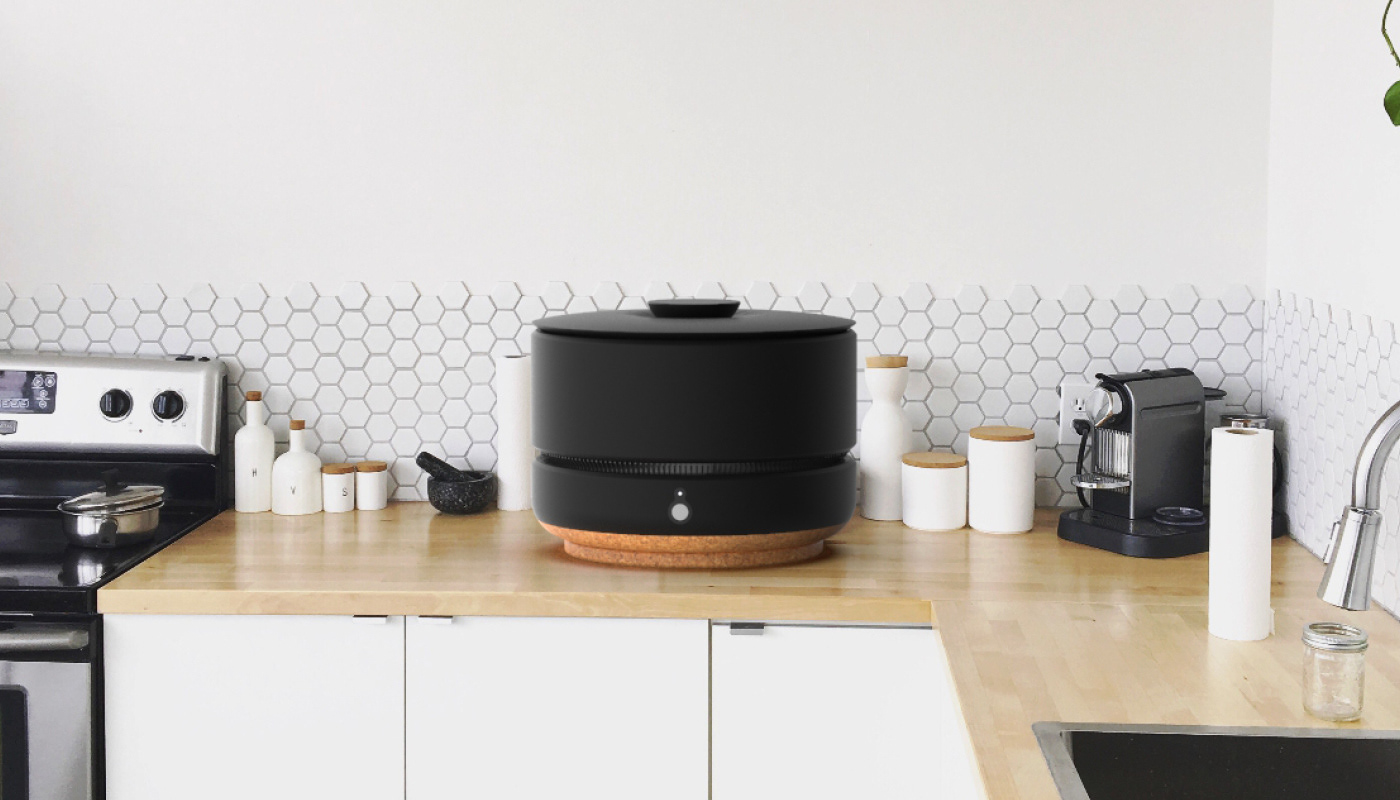
Two stages of composting
The composter was designed for two stages of the composting process:
1. Waste collection stage
At this stage, the tank is placed in the kitchen, close to the user, where it collects fresh organic waste.
It also takes place herethe first stage of decomposition.
2. Maturation of compost
When the container is filled, the user moves the module to the main part, which can be placed elsewhere (basement, balcony, storage, terrace, etc.). The modules are stacked. Thanks to such a solution, the part designed for the kitchen takes up little space, and the user does not have to go to a composter that is away from the place of waste generation (kitchen) every day.
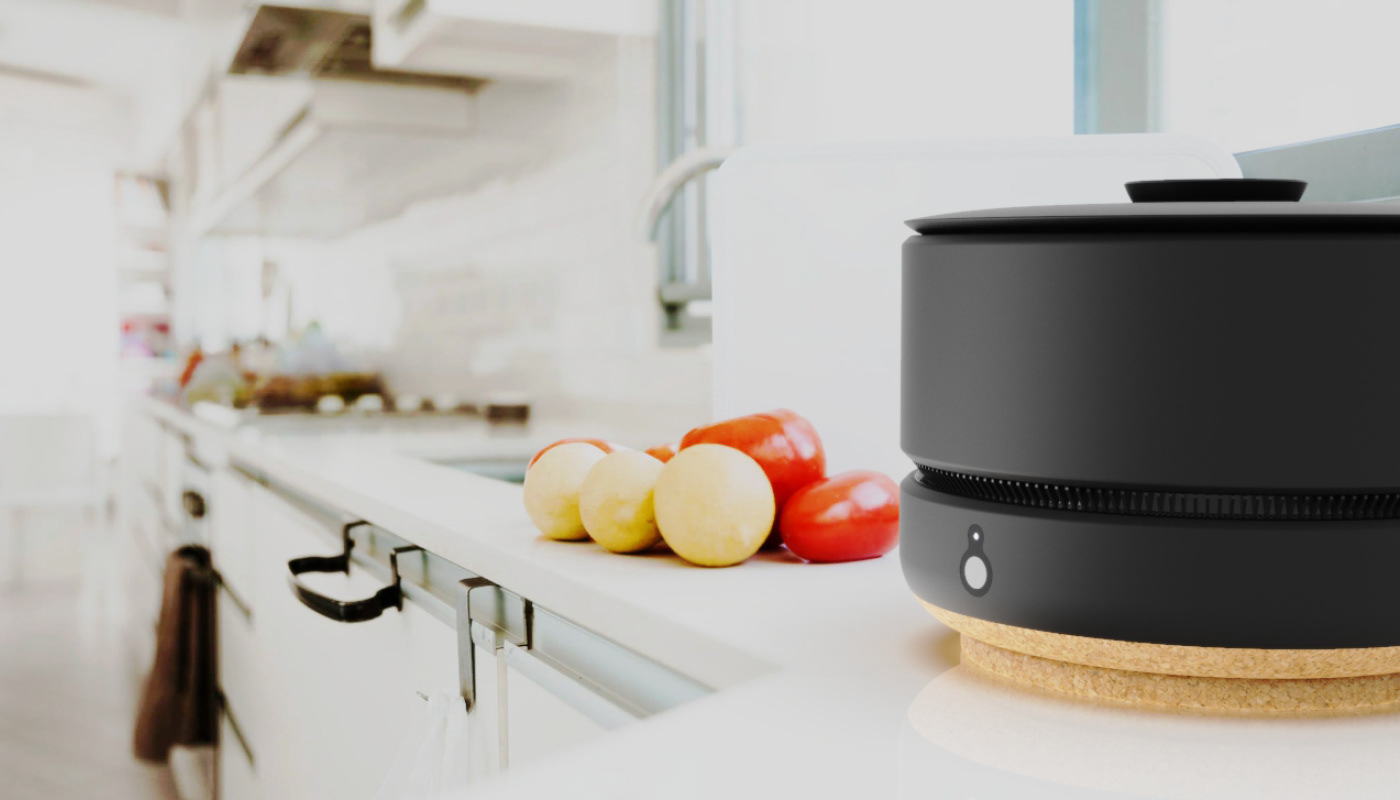
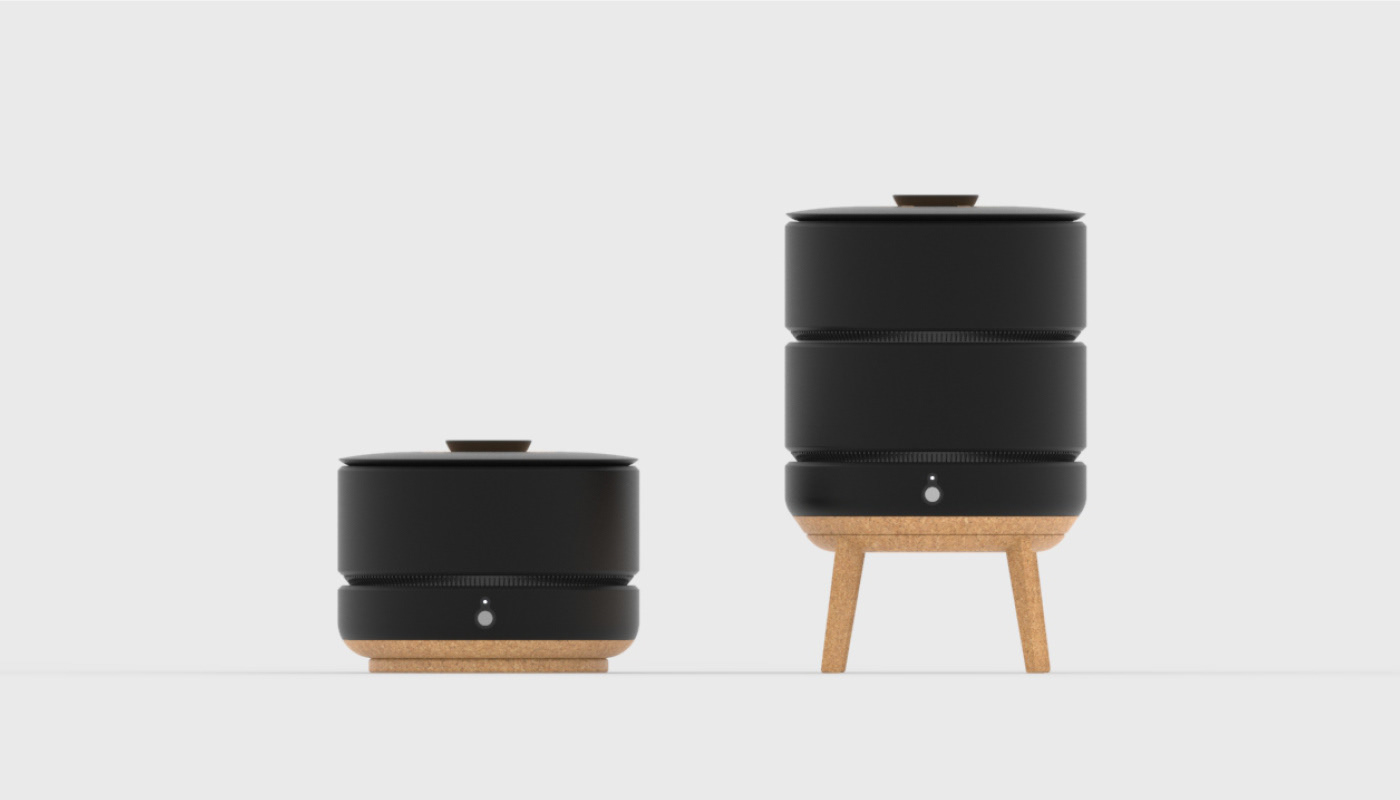
Construction
STAND
Equipped with a turbine driven by a small electric motor, which forces air into the composter, thus ensuring good oxygenation of the compost. This is a condition for a proper composting process. The speed can be adjusted. The stand also has a reservoir for the liquid generated in the composting process and a tap that allows the liquid container to be emptied.
CONTAINERS FOR COMPOST
In them, organic waste is stored and composting takes place. The containers combine modularly and come in three sizes differing in height and the same capacity. This allows for better personalization. Containers are also equipped with retractable handles to facilitate handling. The bottom of the container is covered with holes, which increases air circulation. A cylindrical „chimney” runs through the centre, which is used to aerate the compost.
LID
It is covered with a large number of openings and is equipped with a carbon filter absorbing unpleasant odours.
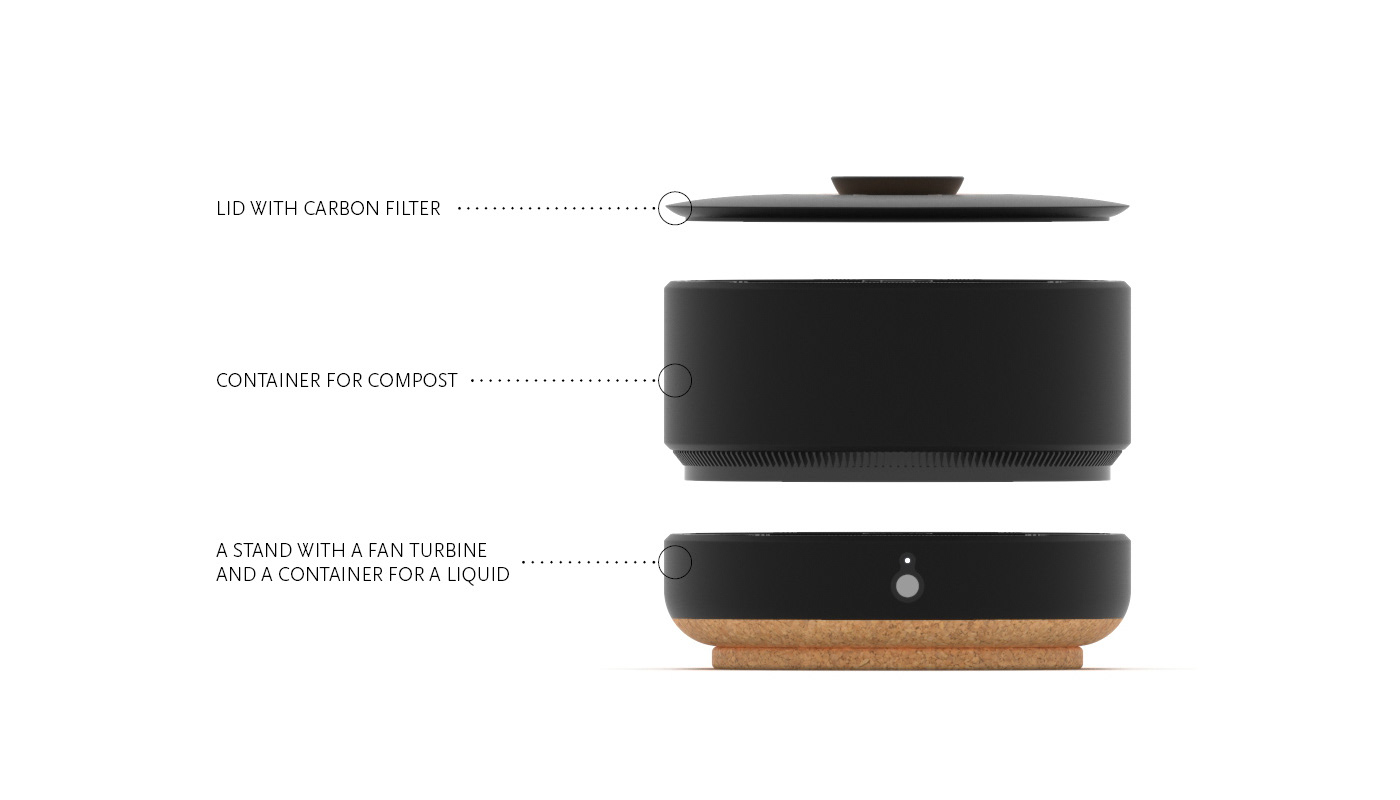
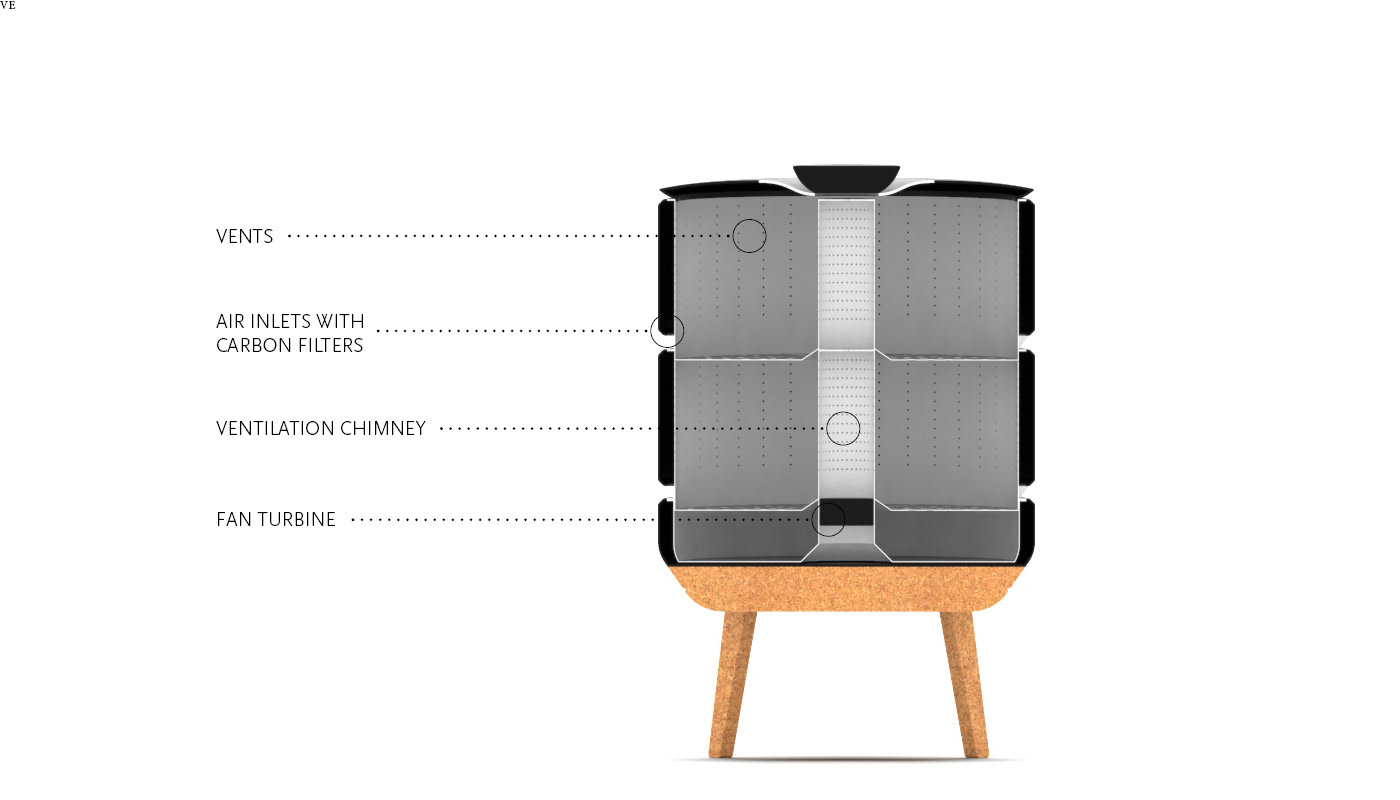


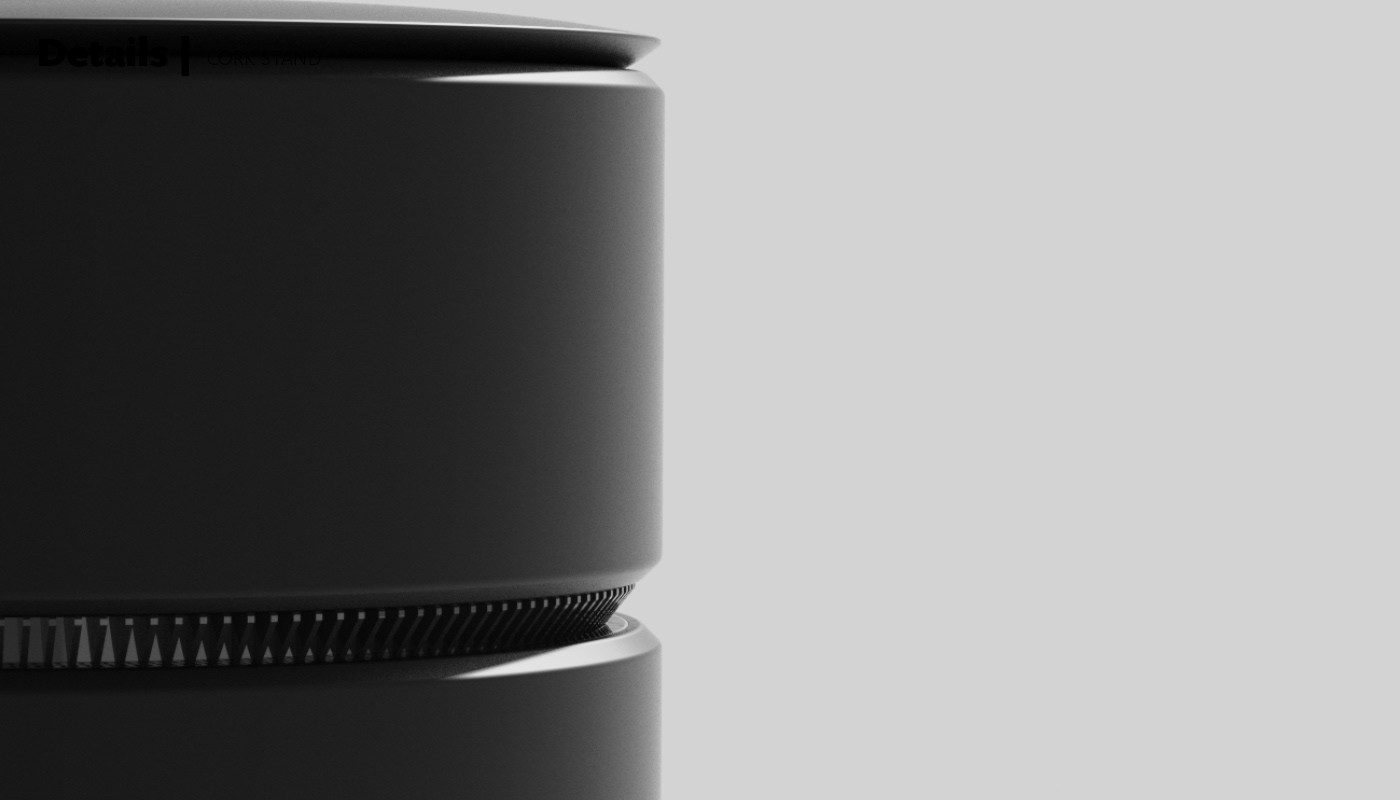
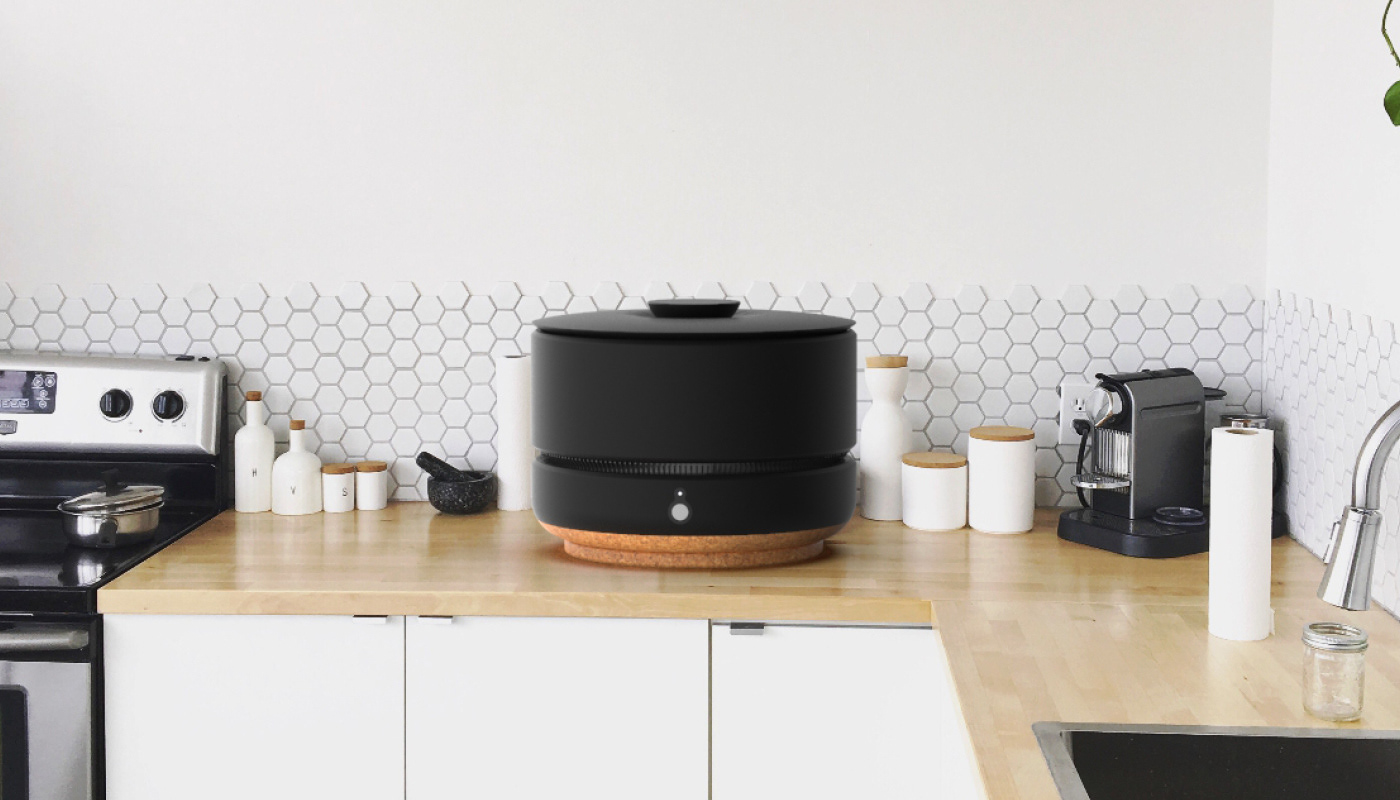
Awards
Winner in „IF DESIGN TALENT AWARD" 2020, HANNOVER / GERMANY
Finalist in „Katerva Awards" 2020, SAN DIEGO / USA
Winner in „INDUSTART" 2020, KIEV / UKRAINE
Winner in „INDUSTART" 2020, KIEV / UKRAINE
Gold Prize in „The International Design Awards (IDA)" 2020, LOS ANGELES / USA
Platinum Prize in „European Product Design Award” 2019, BRUSSELS / BELGIUM
Bronze Prize in „A' Design Award & Competition” 2019, COMO / ITALY

Thank you for watching.




